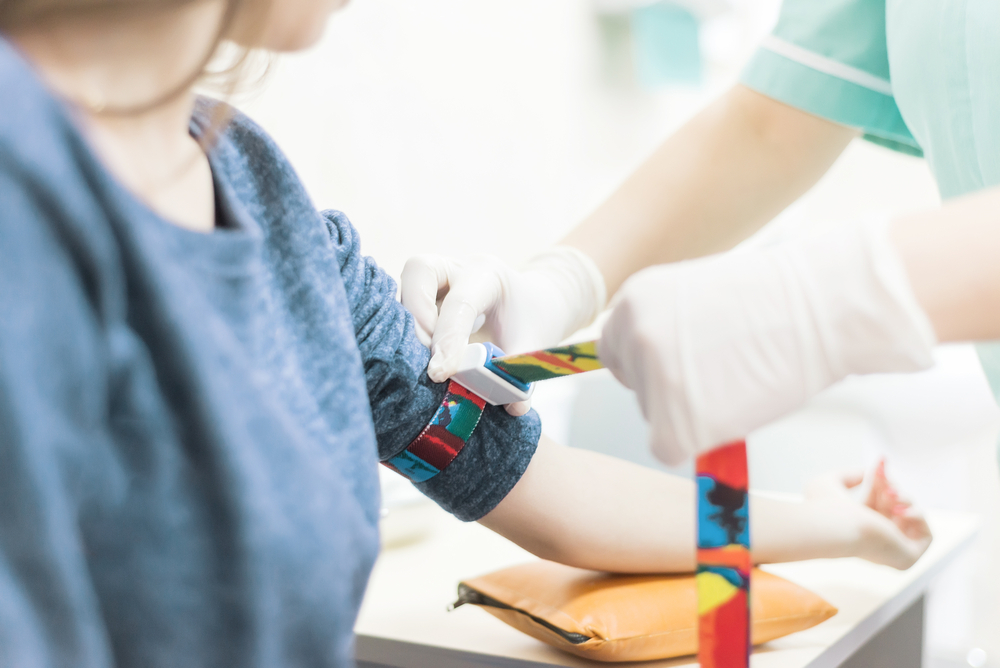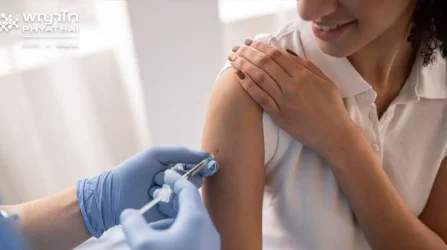
Ms. Rujrawee Chankamai
Being a hematologist means taking care of complex diseases and working together with experts from various medical fields. Therefore, apart from having compassion, we must also pay meticulous attention to address patients' issues comprehensively and make accurate diagnoses. Some diseases are challenging to treat, which is why we prioritize our patients' well-being. We must be attentive and prioritize our patients' benefits to ensure they receive the best care possible.
Ms. Rujrawee Chankamai, also known as Dr. Ping, successfully completed her medical degree from the Faculty of Medicine, Burapha University. After that, she worked as a funded doctor at Trat Hospital, where she enriched her medical skills. Following this, she continued her medical journey as a funded doctor for two more years at Phanat Nikhom Hospital. Eventually, she pursued a specialization in Hematology at the Faculty of Medicine, Ramathibodi Hospital, Mahidol University.
Dr. Ping shared her inspiration and experiences during her studies, saying, “Hematology is a branch of medicine that is another fascinating field of internal medicine. Unlike other specialties, one doesn’t have to study general medicine for three years before showing interest and choosing to study hematology. During my clinical years as a medical student at Somdej Hospital in Sriracha, I encountered a case of leukemia with a very skilled hematologist as my teaching professor.”
She witnessed how the hematologist skillfully treated the patient until they recovered completely, leaving a deep impression on her. Dr. Ping was inspired by the abilities of the hematologist and found herself interested in hematology, particularly in examining blood smears. She thought that this field could be the right path for her, especially as there are relatively few hematologists specialized in blood disorders in Thailand. She aspired to be a part of this specialty to contribute and assist patients suffering from these diseases.
Title: Hematologist: What Diseases Can They Treat?
At Ms. Rujrawee’s Hematology Center, the doctor cares for patients with abnormalities in their blood cells, which may manifest as various diseases such as anemia, thalassemia, abnormal blood clotting, or other blood disorders. They provide comprehensive care and treatment for all patients with blood-related abnormalities, broadly categorized into two main groups.
“The patients can be divided into two primary groups. The first group consists of patients with blood disorders unrelated to cancer, such as genetic conditions, the most common being thalassemia, along with other abnormalities in red blood cells, such as high or low platelet counts, often associated with bone abnormalities. The second group consists of patients with blood abnormalities resulting from cancer, which includes chronic and acute leukemias, as well as lymphomas.”
Roles and Responsibilities of Hematologists
Anyone who notices paleness, unexplained bruises, fatigue without cause, abnormal bleeding in various areas, or palpable lumps in their body should undergo a thorough and immediate examination as these symptoms could be related to blood disorders.
On another note, patients who undergo regular health check-ups and find abnormalities in their blood system, such as elevated or low red blood cell counts or high platelet counts, should consult a hematologist for an accurate diagnosis.
“When a patient comes to see the hematologist, they will review their medical history, blood test results, and conduct various examinations. Additionally, the hematologist will inquire and perform further tests based on the suspected disorder, to pinpoint the cause and make an accurate diagnosis. Afterward, appropriate treatment or referral for treatment will be initiated, and the patient’s progress will be monitored, including preventive measures against the progression and recurrence of the disease.”
How to Diagnose and Develop Treatment for Blood Diseases
In the case of non-cancer patients, Dr. Rujrawee will start by conducting a physical examination and taking blood samples to diagnose the cause of the patient’s anemia. This could be due to iron deficiency, lack of various nutrients, chronic bleeding, or other underlying medical conditions.
For patients with abnormal blood platelets, the cause of the condition will be investigated to determine whether it stems from liver disease or other causes. Once the cause is identified, appropriate treatments will be administered. In cases where bone issues are present, bone marrow examinations may be performed.
“In truth, hematologists take care of patients quite extensively. The diseases they handle often overlap with other medical specialties. Our job is to find the cause of the disease and provide conclusive diagnoses for other doctors. For example, we identify the underlying cause of anemia or abnormal blood platelets. Once the cause is found, the referring doctors can treat the patient accordingly.”
Cancer involving the blood system presents complexities in diagnosis and treatment. Blood-related cancers are quite common, especially leukemia, which causes distress and suffering for the patients. Treating such conditions takes time, and doctors in this field must genuinely care; otherwise, it could lead to discouragement.
“In the case of cancer, we are fortunate that many types of cancers can now be cured with medications. New and highly effective drugs have emerged in recent years, leading to higher recovery rates or at least providing patients with a good quality of life even if they are not cured. However, the outcome depends on various factors, including the patient’s response to the treatment. Overall, advancements in technology and medicine have allowed more treatment options and increased chances of recovery from these diseases.”
Providing Compassionate and Comprehensive Care
At the Hematology Department, Ms. Rujrawee and the team of specialized physicians ensure attentive care for patients. In addition to the expertise of the doctor, the hospital is equipped with various medical specialties collaborating to provide comprehensive care. Standard medical equipment is available, and there is a network connection to the medical laboratory, where specialists promptly analyze test results.

















